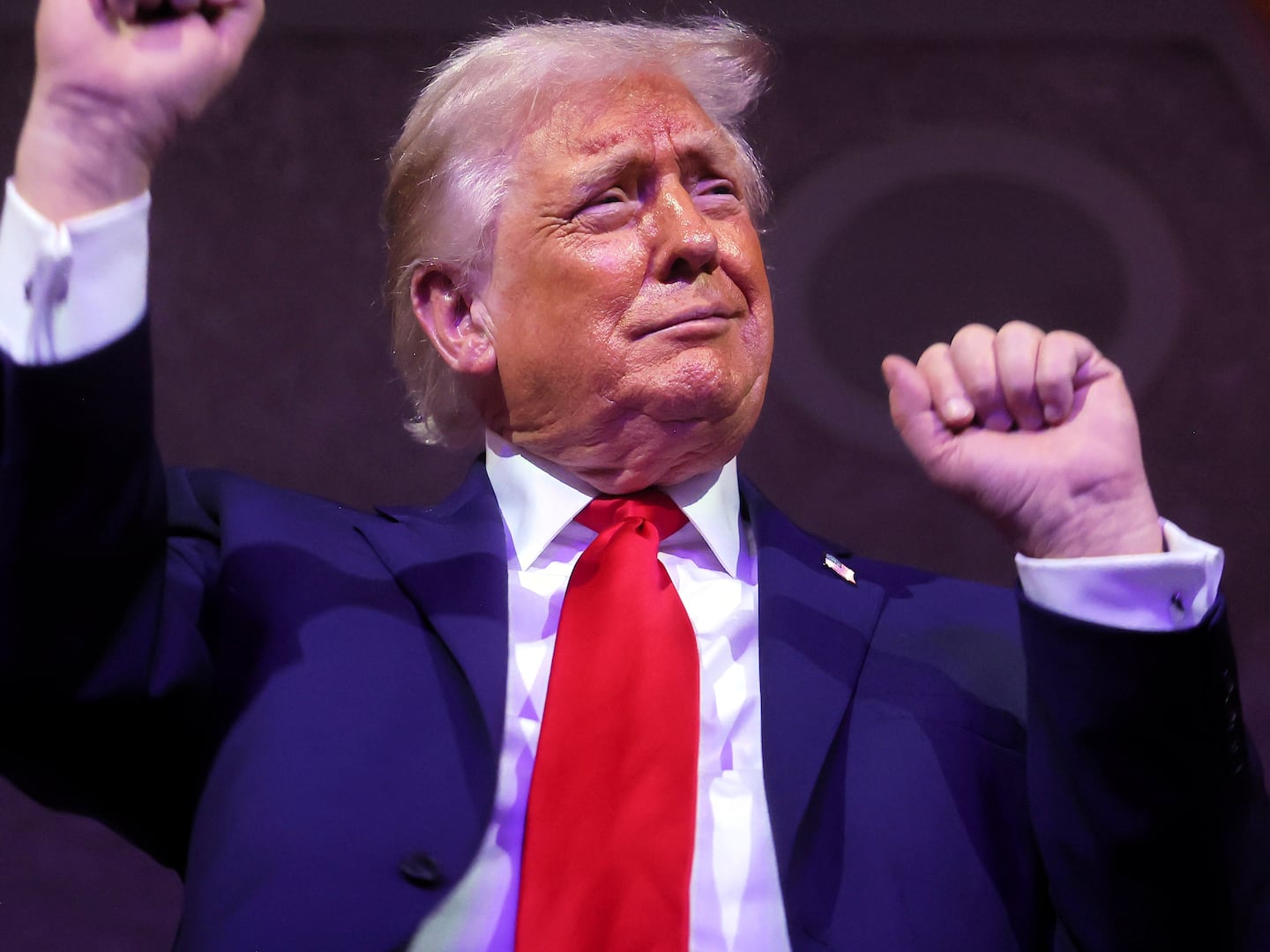On this night four years ago, it was clear. A wave was coming. In November 2009 it was still far out to sea, but it was coming. Chris Christie, a tough talking former U.S. attorney, had upended a liberal governor in Democratic New Jersey. In Virginia a hard-right Republican, Bob McDonnell, running on a socially conservative platform, had crushed the Democrat in a state thought to be trending blue. In two suburban swing counties in New York, unknown Republicans romped over longtime Democratic officeholders.

By 2010, that wave, known as the Tea Party, had landed, upending Washington, D.C., and ushering in what appears to be an era of permanent gridlock on Capitol Hill. In 2005 the reverse was true—a string of Democratic victories up and down the ballot presaged the shellacking the Republicans would take in 2006 and again in 2008.
And now that the 2013 elections are in the books, what do they tell us about the nation’s political landscape, with 2014 midterm campaigning in full swing and the 2016 presidential campaign close to beginning in earnest?
First, we must proceed with caution. Elections a year from now have a way of defying predictions. In November 2012 Christie was widely assumed to face a vigorous reelection challenge in New Jersey, Bill de Blasio was a second-tier contender in the race for New York City mayor, and the phrase “Terry McAuliffe, governor of Virginia,” drew sneers.
Still, a few takeaways can be had from this Election Night.
There is real and deep anger at the political establishment, and at the GOP political establishment in particular. Before Tuesday night, polls pointed at the sentiment, with Republican pollster Bill McInturff predicting that voter frustration would lead to a “shockwave” as a “deeply unsettled people” entered the voting booth looking for blood.
The candidates who were able to capitalize on that anger were the ones who won Tuesday night. In New York City, de Blasio’s come-from-behind victory in the Democratic primary was predicated on his making the cleanest break from the Bloomberg era, while one-time front-runner Christine Quinn promised more of the same. Christie cheered New Jersey hearts when he called House Republicans “disgusting” and accused the GOP of being more focused on scoring debating points than winning elections. His underfinanced Democratic opponent was, in his telling, a creature of the Democratic machine that had suffocated the state. In Alabama, a real-estate developer with no political experience who all but promised to take a torch to the way Washington works narrowly lost to a state lawmaker who received the backing of the U.S. Chamber of Commerce.
If you wonder why Washington can’t compromise, go back to the results from Tuesday night. Lawmakers can throw bombs and rail against the establishment because that is what voters want. But as the 2016 election approaches, conservative operatives have stressed that despite the attention grabbed by the wacko-bird senators—Ted Cruz, Rand Paul, Marco Rubio, and the like—the current crop of governors has an advantage in the primary. By this line of thinking, no matter how much legislators rail against Washington, they are already too tainted by it, and Christie, along with Scott Walker of Wisconsin, John Kasich of Ohio, and Mike Pence of Indiana, could benefit.
On the Democratic side, things are more complicated, with the two most talked-about 2016 contenders, Joe Biden and Hillary Clinton, unable to distance themselves from Washington after a combined 60 years in the district. Still, as they stump for fellow Democrats around the country, look for them to seek to subtly talk up their outsider cred.
The anti-establishment throughline of the 2013 elections could even be extended to Virginia, where the winner, Democrat Terry McAullife, is a consummate party insider. This is someone, after all, who left his newborn son and wife in the car so he could attend a Democratic fundraiser, explaining later, “I felt bad for Dorothy, but it was a million bucks for the Democratic Party.”
But McAuliffe was able to tie his opponent to the national Republican Party. (De Blasio executed the same strategy successfully in New York.) And the shutdown of the federal government, which disproportionally hurt the residents of Virginia, all but sank attorney general Ken Cuccinelli’s candidacy. The results there may reveal something else, however: that a state whose residents voted for Republicans for president for 40 years is now hardly even purple but could be put safely into the Democratic column.
Good candidates in state and local races can make any state swing nearly in either direction, of course; witness liberal bastions such as New York and New Jersey, which both elected Republicans four years ago. And McAuliffe, who was swamped in a Democratic primary in 2009, was no one’s idea of a good candidate. But he had something else in his favor: an overwhelming money advantage. Yes, money in politics is nothing new, but if 2013 is any indication, in 2016 the billion-dollar election of 2012 will seem quaint by comparison. Fifty-five million dollars in Virginia. Thirty-five million in New Jersey. New York’s strict and progressive campaign finance law shredded by a ruling that allows for outside money.
And so the winners this time, and perhaps in the years ahead, must pull off a nervy trick—running against the system while reaping its monetary rewards.






